STUDIJŲ KOKYBĖS VERTINIMO CENTRAS KAUNO TECHNOLOGIJOS UNIVERSITETO STUDIJŲ PROGRAMOS
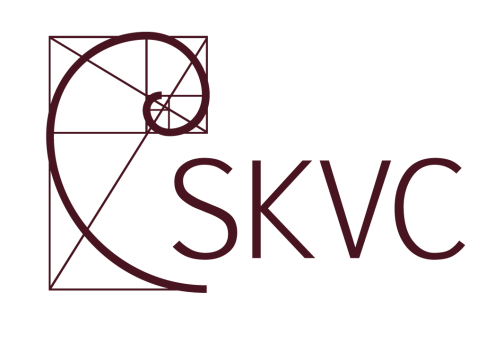
STUDIJŲ KOKYBĖS VERTINIMO CENTRAS
Kauno technologijos universiteto
STUDIJŲ PROGRAMOS NUOTOLINIO MOKYMOSI INFORMACINĖS TECHNOLOGIJOS
(valstybinis kodas – 621E14002)
VERTINIMO IŠVADOS
––––––––––––––––––––––––––––––
EVALUATION REPORT
OF INFORMATION TECHNOLOGIES OF DISTANCE EDUCATION (state code – 621E14002)
STUDY PROGRAMME
At Kaunas University of Technology
|
Review’ team: Ms. Barbara Howell (Chair of the Team), academic, Prof. Dr. Ernst Wilhelm Mayr, academic, Prof. Dr. Sirje Virkus, academic, Mr. Simonas Razminas, representative of social partners’, Mr. Rytis Koncevičius, students’ representative.
Evaluation Coordinator- Ms Birutė Noreikaitė. |
Išvados parengtos anglų kalba
Report language – English
DUOMENYS APIE ĮVERTINTĄ PROGRAMĄ
|
Studijų programos pavadinimas |
Nuotolinio mokymosi informacinės technologijos |
|
Valstybinis kodas |
621E14002
|
|
Studijų sritis |
Technologijos mokslai |
|
Studijų kryptis |
Informatikos inžinerija |
|
Studijų programos rūšis |
Universitetinės studijos |
|
Studijų pakopa |
Antroji |
|
Studijų forma (trukmė metais) |
Nuolatinės (2) |
|
Studijų programos apimtis kreditais |
120 ECTS |
|
Suteikiamas laipsnis ir (ar) profesinė kvalifikacija |
Informacinių technologijų magistras |
|
Studijų programos įregistravimo data |
2007-02-19 |
–––––––––––––––––––––––––––––
INFORMATION ON EVALUATED STUDY PROGRAMME
|
Title of the study programme |
Information Technologies of Distance Education |
|
State code |
621E14002
|
|
Study area |
Technological Sciences |
|
Study field |
Informatics Engineering |
|
Type of the study programme |
University studies |
|
Study cycle |
Seconds |
|
Study mode (length in years) |
Full-time (2) |
|
Volume of the study programme in credits |
120 ECTS |
|
Degree and (or) professional qualifications awarded |
Master of Information Technologies |
|
Date of registration of the study programme |
February 19th, 2007 |
|
© |
Studijų kokybės vertinimo centras |
|
The Centre for Quality Assessment in Higher Education |
CONTENTS
I.1. Background of evaluation process 5
2.1. Programme aims and learning outcomes 7
2.4. Facilities and learning resources 10
I. INTRODUCTION
The evaluation of on-going study programmes is based on the Methodology for Evaluation of Higher Education Study Programmes, approved by the Order No 1-01-162 of 20th December 2010 of the Director of the Centre for Quality Assessment in Higher Education (hereafter, SKVC). Evaluation is intended to help higher education institutions to constantly improve their study programmes and to inform the public about the quality of studies.
The evaluation process consists of the main following stages: 1) self-evaluation and the Self-evaluation Report prepared by a Higher Education Institution (hereafter, the HEI); 2) a visit of the Review Panel at the higher education institution; 3) preparation of the evaluation report by the Review Panel and its publication; 4) follow-up activities.
On the basis of the study programme external evaluation SKVC takes a decision to accredit the study programme either for 6 years or for 3 years. If evaluation of the programme is negative such programme is not accredited.
The programme is accredited for 6 years if all evaluation areas were evaluated as “very good” (4 points) or “good” (3 points).
The programme is accredited for 3 years if none of the areas was evaluated as “unsatisfactory” (1 point) and at least one evaluation area was evaluated as “satisfactory” (2 points).
The programme is not accredited if at least one of evaluation areas was evaluated as “unsatisfactory” (1 point).
The application documentation submitted by the HEI follows the outline recommended by SKVC. Along with the Self-evaluation Report and Annexes, the following additional documents have been provided by the HEI before, during and/or after the site-visit:
|
No. |
Name of the document |
|
1. |
Additional information supplied on request on teaching staff and their qualifications |
|
2. |
Student final theses |
The Kaunas University of Technology (KTU), evolved from the Higher Education Courses established in 1920, consists of 9 faculties, the library, 10 research institutes as well as departments of administration and support. The KTU academic staff consists of 2250 employees (including 1525 full-time employees). KTU has approxinately 7,514 Bachelor students, 2,377 Master students and 412 doctoral students with 460 foreign students are currently enrolled in the KTU.
The KTU offers 132 study programmes (52 Bachelor, 62 Master, 17 Doctoral programmes and 1 non-degree study programme, 39 of which are taught in English). KTU conducts studies of the first, second and third cycles in six main fields: technological, physical and social sciences, arts, humanities and biomedicine.
The second cycle study programme Information Technologies of Distance Education in the field of Technology Sciences sits within the Department of Software Engineering in the Faculty of Informatics. The Faculty was founded in 1977 and it consists of five academic departments and two research centres: Department of Applied Informatics, Department of Information Systems, Department of Computer Science, Department of Multimedia Engineering, Department of Software Engineering, Centre of Information Systems Design Technology, and Centre of Real Time Computer. Teaching staff and employees from the various departments (Department of Multimedia Engineering, Department of Applied Informatics, Department of Computer Science, and Department of Information Systems), the Faculty of Social Sciences, Arts and Humanities, and the E-Learning Technologies Centre provide study support and modules for the programme.
T
Ms. Barbara Howell
(Chair of the Team), Associate
Dean at Coventry University (Faculty of Engineering, Environment
and Computing), United Kingdom of Great Britain and Northern
Ireland.
Prof. Dr. Ernst Wilhelm Mayr, Emeritus
of Excellence at Technical University of Munich, Germany.
Prof. Dr. Sirje Virkus, Professor
of Information Science at Tallinn University (School of Digital
Technologies), Estonia.
Mr. Simonas Razminas, Head
of Quality at Adform, Lithuania.
Mr. Rytis Koncevičius, Doctoral
student at Kaunas University of Technology (Building Services
System field), Lithuania.
II. PROGRAMME ANALYSIS
2.1. Programme aims and learning outcomes
The programme is very niche but relevant to the labour market and unique in Lithuania. The students the Panel met confirmed they were very satisfied with the programme. The aims and learning outcomes of the programme were considered as well defined based on the public needs and the needs of the labour market. The Panel therefore viewed the programme as appropriate and also viable with current student numbers of 16, in 2016.
Programme aims and learning outcomes are consistent with the type and level of studies with the exception of the classification. The Panel notes that the current curriculum of the programme does provide basic knowledge of programming, however not all components of software craftsmanship. The Panel therefore recommend the programme team makes clear the rational for the Informatics Engineering classification rather than Informatics or consider restricting the admission criteria to those students who have a background in informatics engineering or similar.
During the visit learning outcomes were not available online because of website updates. The Programme Management Team were not aware of the change and assured the Panel that learning outcomes were accessible online before the visit. From a review of the curriculum the programme aims and learning outcomes were found to be well defined. The Panel is therefore confident that the learning outcomes could serve as a good example for any other informatics study programme at KTU.
The name of the programme, its learning outcomes, content and the qualifications offered are compatible with each other.
2.2. Curriculum design
The programme is in pursuance with relevant legal acts and regulations; it has been carried out in accordance with KTU academic regulations, and has been informed by the general development plans of KTU and the requirements of the labour market and general legislative and guiding documents for higher education and research in Lithuania and more broadly in Europe. The curriculum developers are well aware of the relevant legislation and policies in Europe. The curriculum design is guided also by research and development trends in the field.
The programme comprises of 120 ECTS credits distributed over the two year duration of the programme. The courses are spread evenly across the semesters and their content is consistent with the type and level of studies. The average study load is spread evenly over the entire study programme duration. The themes of the subjects are not repetitive.
The content of the courses is consistent with the type and level of study. The scope of the programme is sufficient to ensure learning outcomes. In addition, the programme was designed to provide undergraduates from other fields than Informatics and Informatics Engineering an opportunity to enter the programme taking into account their previous knowledge and skills. Therefore, students are grouped according to their education and acquired skills: 1) The ones who have sufficient basics of informatics and IT (for instance, educated in the fields of Informatics and Informatics Engineering or other related fields), and 2) the ones who do not have sufficient basics of informatics and IT, but who have basics of education (for instance, educated in the fields of Education or other related fields, or teaching practice). The first group is offered a set of alternative subject modules related with education. The second group is to choose electives related with the formation and development of the basics of informatics. These options guarantee that the learning outcomes will be achieved and repetition of study subjects from the first-cycle studies will be avoided.
The matrix [SER page 15, Table 5] shows clearly in which study modules the learning outcomes will be developed and achieved
The methods of learning and assessment employed in the courses are appropriate for the achievement of the course and programme intended learning outcomes. As the programme itself, study modules are delivered using virtual learning tools, the students study the material of the modules during virtual classes and independently. A range of instructional methods are used and supported by ICTs according to the SER [SER, p. 16]. The academic staff met confirmed that teachers participating in the programme have been trained to apply virtual learning didactic tools and methods and pay much attention to modern didactics.
The students met confirmed they were satisfied with the programme content and also the delivery methods.
The programme aims further reflect the latest achievements in science, art and technologies and the staff met were well aware of the latest developments within the field. The staff are also encouraged to both develop and use MOOCs to attract students who want to improve qualification in particular fields and not only seek for a Master’s degree.
In summary, the name of the study programme, its intended programme and courses learning outcomes, content, and qualifications offered are altogether compatible with each other. The evidence from student, alumni and staff meetings together with the internal self-assessment report indicates that the degree objectives are achieved. The meetings with students revealed the positive value of the curriculum updates introduced.
2.3. Teaching staff
The teaching staff of the KTU second cycle program Information Technologies of Distance Education (which awards the degree Master of Information Technologies) comprises 11 teachers (2 lecturers, 7 associate professors, and 2 professors). Of course, the teachers contribute not only to this (second cycle) Master program, but also to other study programs like the (first cycle) Bachelor in Informatics or third-cycle programs in the university.
The age distribution of the teaching staff appears basically ok at the moment, though, in particular with respect to the rapid development (scientific, technological as well as societal) in the area it would be very desirable to increase the proportion of younger faculty members. It should be noted in this respect that the average age for the lecturers, as given in the SER, is about 54yrs, considerably less than for, say, the MA program in Informatics.
As judged from the information provided (SER), the legal requirements concerning the teaching staff are satisfied. All 11 members of the teaching staff have a doctoral degree (resp. PhD). The same conclusion applies to the requirement concerning the proportion of the number of study field subjects taught by teachers with a scientific degree (by a wide margin).
Looking at the qualifications of the teachers for the individual courses as well as for the study program as a whole, there seems to be no noticeable problem with regard to ensuring the learning outcomes.
The number of available teachers appears adequate for the study program.
It is clear that the field of Distance Education presently is undergoing a number of significant (and very rapid) changes. One effect in the past was that all such study programs have been combined and this program at KTU is the sole remaining representative in Lithuania. In addition, technology has changed and improved immensely (concerning system capabilities, delivery, network performance, and availability of contents, to name just a few factors). Also, the position and expectations of society (industry, education, administration) are transforming and increasing continuously. Given these facts, the staff of the study program has done an excellent job so far, as attested to by graduates from the course as well as current students. To ensure proper working of the study program also in the future, care has to be taken by the department/faculty to also hire new members more familiar with and inclined to these new developments (this remark must not be taken as any kind of criticism on the present staff, see the previous sentence). It should be noted that the faculty/department is fully aware of this situation, as evidenced in the SER.
With respect to professional development, comments from the teaching staff were positive in general. The department and the university have offered (and do offer) good opportunities regarding professional development, internationalization and technological progress, with good success. The department has also set up several initiatives for the near future to support teachers (and researchers) to adapt to the significant changes in the field outlined above.
In some cases, there appears to be a conflict for academic staff members pursuing research (in the educational field) on the one hand and acquiring higher formal qualifications on the other (in the sense of disjointness of goals). It should be investigated whether and how a better match can be achieved here. In general, the teaching staff is in close contact with the students (many of whom have very specific ideas and requirements since they are already working), with employers (and their needs), and with the providers of technology.
In summary, the overall impression concerning the teaching staff is very positive, keeping in mind the will and need for significant changes in the times ahead.
2.4. Facilities and learning resources
Overall, the premises for studies (buildings, classrooms, and laboratories), the teaching and learning equipment (laboratory and computer equipment, consumables) are adequate both in their size and quality. The Faculty of Informatics also has an Audio-visual Technology Training Centre (Multimedia Technology Training Laboratory and Video Studio Training Laboratory), Mobile Solution Laboratory, and Cisco Laboratory. Halls are made into comfortable areas for students to relax or work, and there are sockets to charge laptops or use them wired.
The Panel had the opportunity to visit several laboratories which appeared to be modern and up-to-date. There is a diversity of equipment, hardware and software available for the students. Well-equipped laboratories provide good support for learning and teaching. Internet connections are sufficient and wireless network is accessible throughout the premises. Information and communication technologies are introduced extensively in all aspects of teaching and learning. The teaching and learning process is supported through the electronic platform Moodle. KTU has a Distance Learning Technologies Research Laboratory which provides resources that enhance the teaching/learning experience of the teaching staff and of the students.
In addition, there are several software tools available for students that can be downloaded for home use to perform specific tasks related to the programme. Students may acquire also licenses for various products and software. These privileges are granted by signed agreements between KTU and software developers.
There is a central library within the KTU, which on brief inspection appeared well organised, giving access both to print-based and electronic resources. Teaching materials (textbooks, reference books, monographs, periodical publications, databases) are adequate and accessible. KTU library belongs to the Lithuanian Academic Libraries Network (LABT) and the students can use their joint resources. KTU central library subscribes to about 30 international databases, such as: Web of Science, SpringerLINK, BMJ Journals Online Collection, Emerald Engineering eJournals Collection, Oxford University Press Journals and others. Library computers can be used to access public internet sites and restricted subscriptions and databases as well. The majority of study material can be accessed via the Internet in digital form which is especially relevant to the distance education programme. Librarians periodically provide lectures and workshops regarding electronic knowledge database usage tools and methods, and provide resource search consultations.
The programme has many material and methodical resources that determine the successful organisation, design, delivery and support of the study process. One of the strengths of the provision of material resources is that the University has implemented a common access principle which ensures common access to administrative system, learning environment, library, etc. Yet another strength is an increasing number of e-resources. This provides wider possibilities to find necessary learning resources on the Internet.
The programme is a Distance Learning programme, therefore the students are provided with the necessary software to attend the classes virtually from their workplaces or home. YAMMER is a tool for communication and cooperation that is integrated in the unified system of KTU. It enables such functions as group work and the cooperation of students of the programme with anyone across the organisation for any given project.
KTU uses the common study information system which supports the study process at the University: administration of study programmes and modules, student records, planning and administration of teachers’ pedagogical workload and other.
KTU has an intranet – Document Management System (DMS) which enables staff management functions and provides the potential to manage documents related to the programme.
In addition to Moodle, KTU uses a video conference system called Vidyo, the video lecture transmission system Adobe Connect and VIPS. The lectures are not only broadcasted online, but also recorded. If students are not able to virtually participate in the class while it is broadcasted, they can watch the class at a more convenient time on the Internet. The Adobe Connect and ViPS systems ensure the interactive participation of students in classes from any workplace in Lithuania or abroad. Live broadcast of classes or their records can be watched on smartphones or tablets.
Meetings with the students, alumni and teachers confirmed that facilities and resources for teaching and learning are adequate.
In conclusion, the variety as well as quantity of learning facilities and resources is sufficient to achieve the learning outcomes of the study programme.
2.5. Study process and students’ performance assessment
In general, the study process ensures an adequate provision of the programme and the achievement of the intended programme and course learning outcomes. The learning methods as stated in the course syllabi are appropriate for the achievement of the intended programme and course learning outcomes. The assessment rules and procedures are well defined and publically accessible. They agree with the legal requirements of university access. Admission of students is administered by the University Admission Committee. There are no entrance examinations for the programme. According to the SER [paragraph 2.5.1] admission is carried out in the form of a competition based on the composition of the weighted average of the first-cycle grades multiplied by coefficient 0.7 and the grade of research activity in ten-point scale multiplied by the weight coefficient 0.2 and the grade of motivation in ten-point scale is multiplied by the weight coefficient 0.1.
The organisation of the study process ensures an adequate provision of the programme and the achievement of the expected learning outcomes.
After meeting with the students (including virtual conversations), panel members learnt that students are not encouraged to participate in research projects from the beginning of the study process to enable space and time to first reflect on field of study.
The students are offered the possibility to present their research results in several scientific conferences, for example, in the annual KTU conference “Information Technologies”, although it was not clear to the Panel that students had taken up this opportunity. However according to the requirements of KTU Faculty of Informatics, a master student cannot receive final evaluation "Excellent" if he/she has no published scientific articles or doesn't have an externally approved deployment act for the software product he/she developed. The panel therefore recommend all students be encouraged and supported to publish their research results where practicable.
All study subjects are taught virtually, however, students may come attend a physical classroom session if required, whereas those who cannot participate in the class at the time of delivery can watch video records as all classes are recorded and links to the records are provided on the Virtual Learning Environment. In all cases the lectures are interactive with teaching staff conducting discussion forums, student tests and answering students’ questions.
Students have opportunities to participate in student mobility programmes, such as ERASMUS. Student mobility on a national level has increased from 14 in 2014 to 39 in 2015 & 2016, according to SER [table 11, paragraph 2.5.2]. An ERASMUS programme coordinator role is in place to support the mobility of the students. However little was mentioned of international projects and research works. The Panel therefore recommends programme teams to promote and engage the students such activities.
The University ensures an adequate level of academic and social support and the University student support system is functioning well.
2.6. Programme management
Responsibility for decisions and monitoring of the implementation of the programme are clearly allocated as set out in the Self Evaluation Report (SER). For example, the Vice Rector has ultimate administrative and quality assurance oversight of the programme are supported by the Department of Study Organisation, Study Quality Assurance and Development, Student Affairs and other administrative units [SER pg. 34]. The Study Committee advises Senate on the approval of the programme with Senate holding ultimate responsibility of the approval and of quality assurance and monitoring.
The University Study Programme Committee consists of 9 members representing the various areas and chaired by the Vice-Rector for Studies reviews the quality of existing programmes and overseas new programmes.
In 2016 the university established the Fields’ Study Programme Committee (FSPC), comprising 9 faculty members, 2 social partners and 2 student representatives, coordinated by the Manager of the FSPC. The FSPC is responsible for the content and quality of the programme and also of the process of annual review of the structure and content of the programme. FSPC is managed by Field Study Programme Director (FSPD) and together participate in the composition of the programmes. Any major changes to a programme are approved by Faculty Council.
The Council of the Faculty comprising 9 teachers, 2 social partners and 3 student representatives takes the recommendation from FSPC for new programmes and presents those proposals to FSPD for considerations. The Panel confirmed that staff and students are encouraged to attend committee meetings although none of the students met had been in attendance.
The Faculty Study Centre headed by the Vice Dean of Studies coordinated the processes of study while the Heads of Department have responsibility for the study modules. The Dean of the Faculty oversees the implementation of a programme.
During the visit the Panel confirmed the organisation and nature of the deliberative committee structures and their composition and were satisfied that they work as expected.
Information and data on the implementation of the programme are regularly collected and analysed thought the Study Centre with the Academic Information System (AIS) on the University website being used as the main repository.
Stakeholder feedback is collected from students, graduates, teachers and employers at the University level to evaluate study subjects, the programme, teachers and aspects of academic life. Mechanisms were clearly in place to receive feedback from students through questionnaire, regular round table events and directly to the teacher. The Panel further learnt that teaching staff, employers and alumni have an opportunity to provide feedback and in response to that feedback the programme teams have introduced new topics, new tools and adapted teaching methods.
The programmes undergo periodic certification, which can be from 1-3 yrs. In 2012 the programme was approved for 6 years with a positive evaluation in the study field of Informatics Engineering.
The programme has been established in a fast moving field and although benchmarking has taken place with similar programmes delivered by the Open University and MIT the Panel were informed by the staff they are not clear about the market.
The Panel would therefore recommend the programme team to put in place mechanisms for the regular review of the relevance of the programme to potential students and employers
The staff met confirmed that they are involved in programme design and could make suggestions for changes which would be considered through the committee structure. Examples of changes were given and the teaching staff members confirmed that they changed the content of their lectures every year to keep the curriculum up to date.
Employers and Social Partners also take part in the process of programme quality assessment and improvement and those met confirmed representatives from their company have an opportunity to give advice through the university committee structure.
Internal Quality Assurance oversight is governed by the KTU Quality Guide, which considers areas such as the management and administration, student support, infrastructure and human resources, research and applied activities monitoring, and analysis and improvement process. The Quality Guide further describes a University's quality assurance model based on the higher education quality assurance guidelines and regulations as well as their importance and appropriateness for the European Foundation for Quality Management Excellence Model (EFQM TM) criteria.
From reading the SER, meetings with staff, students, alumni and social partners, reviewing additional documentation on the committee structure and quality guides, the Panel viewed that overall KUT has mechanisms in place for the effective and efficient internal quality assurance of the Information Technologies for Distance Learning Programme. Therefore the Panels’ assessment of the programme management is rated as a three.
The members of the teaching staff have kept their knowledge of the discipline area up to date for such a fast paced discipline area through professional development, thus creating highly employable graduates.
The programme has many material and methodical resources that determine the successful organisation, design, delivery and support of the study process. These have been further enhanced by an increasing number of e-resources for wider possibilities to find necessary learning resources on the Internet.
Make clear the rational for the Informatics Engineering classification rather than Informatics or consider restricting the admission criteria to those students who have a background in informatics engineering or similar.
Encourage all the students and provide support for the publishing of their research results where practicable.
Develop mechanisms that promote and engage the students in national and international projects and research works.
Investigate the extent of or how a better match can be achieved between staff who pursue research and those that study for higher formal qualification.
Put in place mechanisms for the regular review of the relevance of the programme to potential students and employers
The programme was found to be very niche but relevant to the labour market and unique in Lithuania. The programme aims and learning outcomes are consistent with the type and level of study with the exception of the classification, whereby the Panel viewed the content to align more closely to an Informatics programme rather than Informatics Engineering. Overall however the name of the programme, its learning outcomes, content and the qualifications offered are compatible with each other.
The programme meets the relevant legal acts and regulations; operates in accordance with KTU academic regulations, has been informed by the general development plans of KTU, the requirements of the labour market and trends within the field.
The programme is delivered using virtual learning tools to enable the students to study the material of the modules during virtual classes or independently. Positive feedback was provided from the students and alumni of the objectives and nature of the programme.
From a review of the teaching staff compliment the Panel were satisfied that their qualifications were appropriate to support the learning outcomes of the programme and sufficient staff were available to cover the number of study field subjects taught. The Panel commended the teaching for the excellent support they provided to the both past and current students. The Panel did however note a potential tension for the staff and their aspirations to pursue research against seeking to achieve higher formal qualification. The Panel would emphasise the need to continue to seek to hire new members of staff familiar with new developments in order to future proof the programme.
Overall, the buildings, classrooms, laboratories, library and teaching materials were found to be both appropriate and accessible. Facilities appeared up-to-date and there was a diversity of equipment, hardware and software available for the students. The Panel viewed the implmentation of a common access principle to its administrative system, learning environment and library, etc as a key strength of the provision. Another strength is an increase in the number of e-resources which provide wider possibilities to find necessary learning resources on the Internet. The Panel also noted that KTU has a Distance Learning Technologies Research Laboratory which provides resources that enhance the teaching/learning experience of the teaching staff and of the students.
The learning methods and assessments were also found to enable appropriate achievement of the intended programme and course learning outcomes. The assessment rules and procedures are well defined and publically accessible and agree with the legal requirements of university access. Althought it was claimed that students can present their research results in scientific conferences it was not clear that this had taken place, therefore the Panel recommended that all students be encouraged and supported to publish their findings were practicable. Students also have opportunities to participate in ERASMUS mobility programmes and the number of participants was found to be increasing over the past three years, althought little was mentioned of international projects and research works. The Panel therefore recommends programme teams to promote and engage the students such activities.
University, Faculty, Department and Field Study Programme Committee deliberative structures are in place for decisions making and the monitoring of the implementation of the programme, and the Panel confirmed they work as expected.
Information and data on the implementation of the programme and stakeholder feedback are collected. The programme has also been benchmarked with similar programmes delivered by the Open University and MIT. However the staff met were not clear about the market for the programme, therefore the Panel recommend implementing mechanism for the regular review of the relevance of the programme to potential students and employers.
V. GENERAL ASSESSMENT
The study programme Information Technologies of Distance Education (state code – 621E14002) at Kaunas University of Technology is given a positive evaluation.
Study programme assessment in points by evaluation areas.
|
No. |
Evaluation Area |
Evaluation of an area in points* |
|
1. |
Programme aims and learning outcomes |
3 |
|
2. |
Curriculum design |
4 |
|
3. |
Teaching staff |
3 |
|
4. |
Facilities and learning resources |
4 |
|
5. |
Study process and students’ performance assessment |
3 |
|
6. |
Programme management |
3 |
|
|
Total: |
20 |
*1 (unsatisfactory) - there are essential shortcomings that must be eliminated;
2 (satisfactory) - meets the established minimum requirements, needs improvement;
3 (good) - the field develops systematically, has distinctive features;
4 (very good) - the field is exceptionally good.
-
Grupės vadovas:
Team leader:
Barbara Howell
Grupės nariai:
Team members:
Prof. Dr. Ernst Wilhelm Mayr
Prof. Dr. Sirje Virkus
Simonas Razminas
Rytis Koncevičius
Tags: studijų kokybės, 19 studijų, studijų, centras, vertinimo, universiteto, technologijos, kauno, programos, kokybės
- ZAŁĄCZNIK NR 5 WZÓR OPISU DOKUMENTU FINANSOWEGO DOTYCZĄCEGO KOSZTÓW
- LE PARTAGE DES EAUX ENTRE LA SYRIE LIRAK ET
- DPDCPSYC2 ANNUAL SESSION OF 2011 6 TO 17 JUNE
- GEACHTE OUDERS 1 SEPTEMBER 2017 OP AS MAANDAG 4
- LEMBARAN DAERAH KOTA BANJARMASIN TAHUN 2007 NOMOR 19
- INTRODUCTION TO HEALTHCARE AND PUBLIC HEALTH IN THE US
- FORMULARZ OFERTOWY ŚWIADCZENIE USŁUG TELEFONII KOMÓRKOWEJ WRAZ Z ZAKUPEM
- TSGSAWG5 (TELECOM MANAGEMENT) MEETING 5 TSGS55(99)143 SAN DIEGO
- DOUG SMITH BIO DOUG SMITH HAS BEEN INVOLVED IN
- APRENDE A GENERAR UNA MACRO EN MICROSOFT WORD CONTENIDO
- INTRODUCTION AS OF 2012 AFTER THE ADOPTION OF AUXILIARY
- NOTA DE PRENSA LAS VI JORNADAS NOBEL DE LA
- PSICOLOGÍA DEL DESARROLLO II PS VÍCTOR CABRERA V LA
- NOTA SOBRE INTERVALOS DE CONFIANZA SI TENEMOS DOS POBLACIONES
- T ROPICAL WEATHER REVIEW QUESTIONS 1 EACH SQUARE
- 7 RSL Nº 11699 LICITACIÓN PÚBLICA Nº10298 R SL
- 2 PLANARIDAD EN TEORÍA DE GRAFOS UN GRAFO PLANAR
- P ROJECT CHARTER PROJECT TITLE STSCI AWARDS WEBSITE PROJECT
- REAL FEDERACION ESPAÑOLA DE BALONMANO AREA DE COMPETICIONES Y
- INTRODUCTION TO HECHMS 35 FROM AN EARLIER DOCUMENT BY
- INTRODUCTION AS IN PLACES SUCH AS EUROPE NORTH AMERICA
- THIS DOCUMENT IS IMPORTANT AND REQUIRES YOUR IMMEDIATE ATTENTION
- A UXILLARY SERVICES COLLEGE COUNSELOR SUSAN ELLIS SELLISCGHSNCORG 9198341625
- EXERCICIS (PÀGINES 2 I 3) 1 OBSERVA AQUEST QUADRE
- BIOGRAFIA DON LUIGI CIOTTI NASCE IL 10 SETTEMBRE 1945
- PLEASE SEND THIS FORM BY EMAIL ALONG WITH A
- how to Cover Learning Outcomes for Unit 027 (34)
- OŚWIADCZENIE O PRZYNALEŻNOŚCI LUB BRAKU PRZYNALEŻNOŚCI DO GRUPY KAPITAŁOWEJ
- PHÓNG XẠ TỰ NHIÊN TRONG MỘT SỐ NGÀNH CÔNG
- NA OSNOVU ČLANA 45 STAV 1 TAČKA 9 ZAKONA
 PROGRAMA DE TURISMO DEL IMSERSO PERSONAS QUE REÚNAN CUALQUIERA
PROGRAMA DE TURISMO DEL IMSERSO PERSONAS QUE REÚNAN CUALQUIERA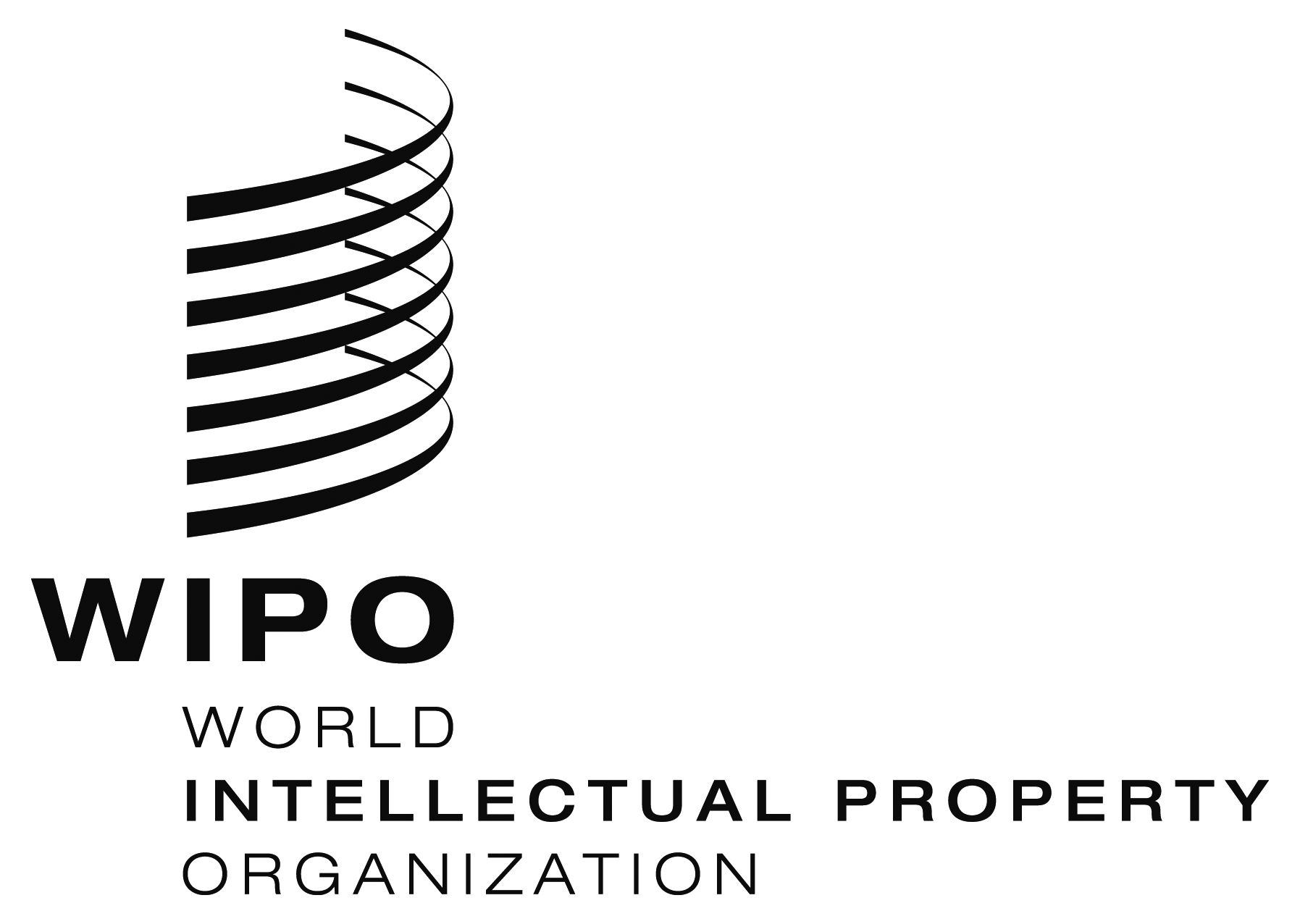 Wipoace84 Page 11 e Wipoace84 Original English Date October
Wipoace84 Page 11 e Wipoace84 Original English Date OctoberNEW GIFT ACCOUNT REQUEST FORM FOR THE FACULTY OF
BRUSELAS 22 DE OCTUBRE DE 2012 ESTIMADA SRA REDING
POPIS CILJANIH SKUPINA CILJANA SKUPINA (PREMA ABECEDNOM REDU) OZNAKA
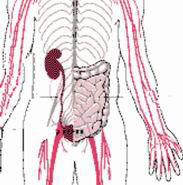 OPASNE BAKTERIJE U HRANI KONZUMIRANJEM HRANE KOJA SADRŽI BAKTERIJE
OPASNE BAKTERIJE U HRANI KONZUMIRANJEM HRANE KOJA SADRŽI BAKTERIJEGAGNGW14 PÁGINA 7 ORGANIZACIÓN MUNDIAL DEL COMERCIO GAGNGW14 23
 DATE DE RÉVISION NOV 2019 1DÉSIGNATION DU PROJET
DATE DE RÉVISION NOV 2019 1DÉSIGNATION DU PROJETORDENANZA FISCAL Nº 8 CONTRIBUCIONES ESPECIALES POR RAZON DEL
 KINGSTEIGNTON TOWN COUNCIL RECREATIONFOOTPATHSTHE FOUNTAIN COMMITTEE MINUTES OF THE
KINGSTEIGNTON TOWN COUNCIL RECREATIONFOOTPATHSTHE FOUNTAIN COMMITTEE MINUTES OF THE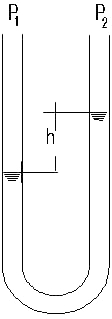 APARATOS DE MEDIDA – VENTILACIÓN INDUSTRIAL 1 INTRODUCCION
APARATOS DE MEDIDA – VENTILACIÓN INDUSTRIAL 1 INTRODUCCION ANLÄGGARINTYG AUTOMATISK VATTENSPRINKLERANLÄGGNING ANLÄGGARFIRMANS ANLÄGGNINGSNR REGELVERK OCH UTGÅVA NYANLÄGGN
ANLÄGGARINTYG AUTOMATISK VATTENSPRINKLERANLÄGGNING ANLÄGGARFIRMANS ANLÄGGNINGSNR REGELVERK OCH UTGÅVA NYANLÄGGN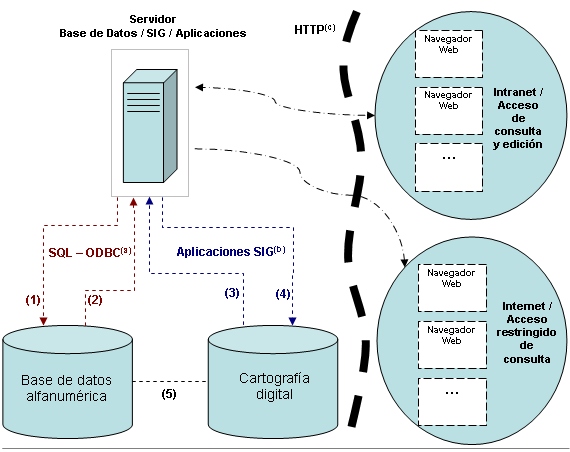 DISEÑO E IMPLEMENTACIÓN DE UN SISTEMA DE INFORMACIÓN PARA
DISEÑO E IMPLEMENTACIÓN DE UN SISTEMA DE INFORMACIÓN PARA YA HAS VISTO LA OFERTA DE TARIFAS DE LA
YA HAS VISTO LA OFERTA DE TARIFAS DE LA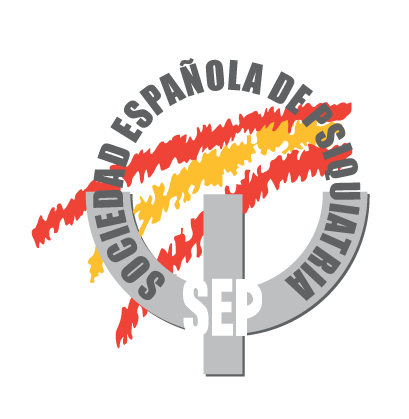 SOLICITUD DE CREACIÓN DE GRUPOS DE TRABAJO PRINCIPIO DEL
SOLICITUD DE CREACIÓN DE GRUPOS DE TRABAJO PRINCIPIO DEL 0 SL RUE BELLIARDBELLIARDSTRAAT 99 — 1040
0 SL RUE BELLIARDBELLIARDSTRAAT 99 — 1040ECONOMICS 5310 AGGREGATE SUPPLY AND AGGREGATE DEMAND AND
INFORME DO SORTEO DATA DO SORTEO 18062008
III) LIBERTÉ BONHEUR ET MORALE A LA LIBERTÉ S’OPPOSETELLE
 SỞ LĐTB&XH TỈNH BÌNH DƯƠNG TRƯỜNG TC KINH TẾ
SỞ LĐTB&XH TỈNH BÌNH DƯƠNG TRƯỜNG TC KINH TẾ